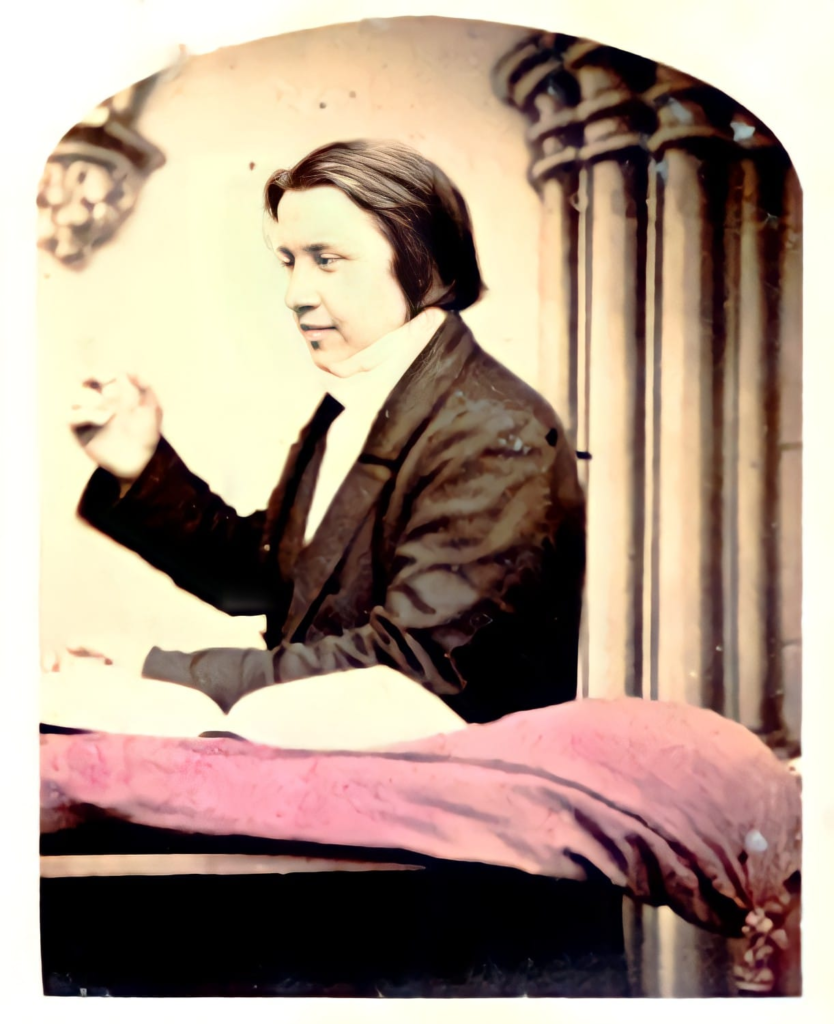
Spurgeon believed that the power of the pulpit lay not in the preacher, but in the Word of God. Therefore, he believed that preachers should preach expositional sermons. These were sermons that took a text of Scripture as their main theme and sought to explain and apply those texts to the people. Spurgeon did not forbid other kinds of sermons, but he charged pastors to make expositional preaching their main practice.
When crafting a sermon, Spurgeon taught his students to stick closely to the text. Whatever doctrine or application they taught, their matter “must be congruous to the text.” They should avoid thrusting the text to the side to make room for their own ideas. Instead, “the discourse should spring out of the text as a rule.” This should be evident not only to the preacher but to all that listen. The more people can see that the preacher is speaking “plainly the very word of God,” the more the sermon comes “with far greater power to the consciences of hearers.”
Some have critiqued Spurgeon’s preaching and have wondered if he was really an expositional preacher. Perhaps in reading his devotions from Morning and Evening or working through one of his more typological sermons, some have found Spurgeon to be looser in his handling of the text than they’re used to. At least two things can be said in response.
First, Spurgeon’s expositional preaching was not about a style, but a commitment to rooting his sermons in the Word of God. Some associate expositional preaching with a certain style, particularly with verse-by-verse preaching. Spurgeon, however, cared less about style. He cared more about his preaching being rooted in God’s Word. Preaching was “not a lecture about the Scripture, but Scripture itself opened up and enforced.” Most of Spurgeon’s sermons covered a single verse. But on occasion, he also preached longer passages.
But regardless of style or length of passage, Spurgeon’s aim (and the aim of all expositional preaching) was to open and apply the Scriptures to his people.
Second, Spurgeon was not afraid to preach the overarching narrative and theology of Scripture. When preaching on a single verse, Spurgeon often used that verse as a lens through which he meditated on all of Scripture, both systematically and redemptive-historically. But even in doing so, he did not abandon the text but constrained his reflections by it. A careful reading of his sermons will show that his points are not random; they flow from the structure and content of the passage. Additionally, Spurgeon was mindful of the context of the passage, which he often incorporated in the Scripture reading. In planning the service, Spurgeon always looked for readings drawn from the context or related to the text. He also provided brief commentary as he read so that by the sermon, his people had some understanding of the context. This preparatory work in the text allowed him to go further and deeper in his preaching without losing the historical-grammatical context.
At the end of the day, whether he succeeded in preaching any given sermon expositionally can be debated. What is clear is that Spurgeon advocated such preaching and sought to do it himself. These are the kinds of sermons that should make up the bulk of a pastor’s preaching. “Although in many cases topical sermons are not only allowable, but very proper, those sermons which expound the exact words of the Holy Spirit are the most useful and the most agreeable to the major part of our congregations.”
Excerpted with permission from Spurgeon the Pastor by Geoff Chang. Copyright 2022, B&H Publishing.